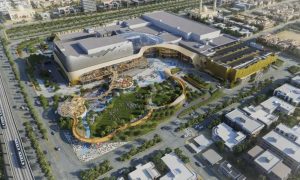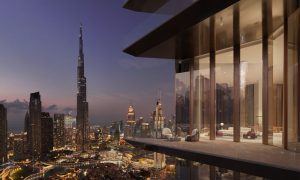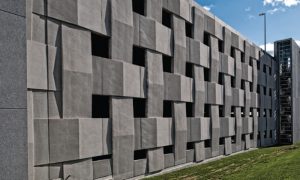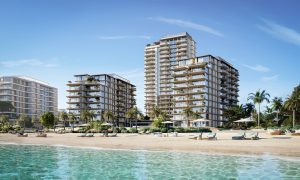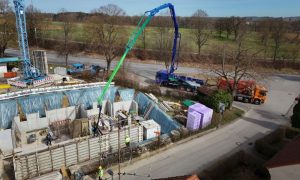TRSDC appoints Cundall to develop lighting strategy for Dark Sky Reserve at The Red Sea Project
Developer plans to create the largest certified Dark Sky Reserve in the world
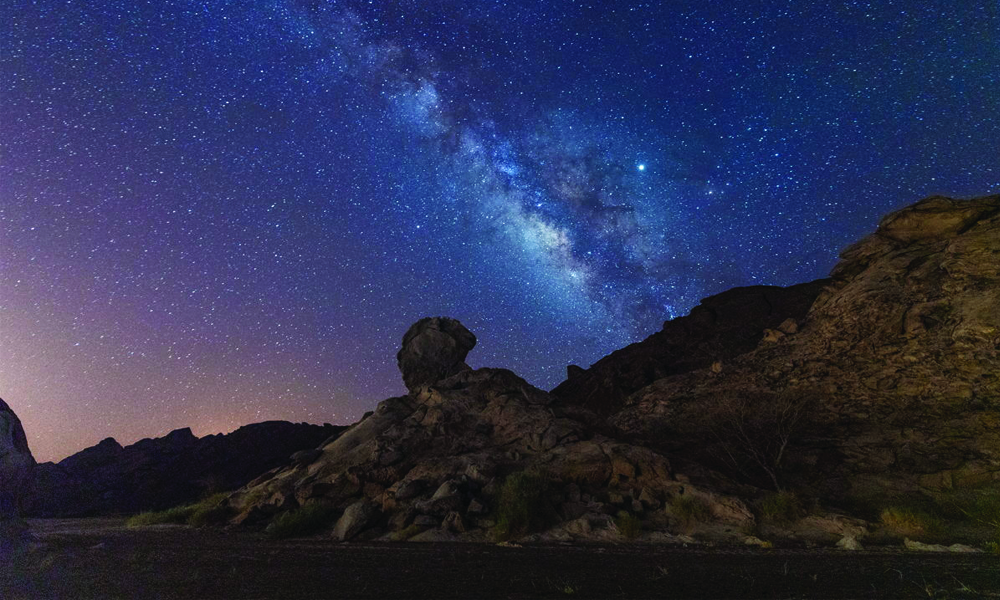
The Red Sea Development Company (TRSDC), the developer behind The Red Sea Project, a gigantic tourism destination in Saudi Arabia, has announced plans to become the largest certified Dark Sky Reserve in the world.
According to a statement, TRSDC said that it is seeking an accreditation that recognises areas with exceptional quality of nightscapes and a commitment to protecting the nocturnal environment. The developer said that it has appointed Cundall, an international multi-disciplinary consultancy providing engineering, design and sustainable solutions, to develop a lighting strategy that would provide enough lighting for safe movement around the site, while still meeting the stringent International Dark Sky criteria.
“We are proud to announce our intention to become the first full-scale destination in the Middle East to pursue this unique accreditation, intended to safeguard the natural environment and allow guests to marvel at the beauty of the night sky,” said John Pagano, chief executive officer, The Red Sea Development Company.
“Over the centuries, explorers, trade caravans and pilgrims have used the night sky to navigate across our region. Dark Sky accreditation will allow our visitors to enjoy the same stunning night-time panoramas that guided and inspired those historical travellers. We are proud to become part of a worldwide movement dedicated to restoring mankind’s intimate relationship with the stars.”
As per a study for Science Advances, it is estimated that the Milky Way is no longer fully visible to one-third of humanity – including 60% of Europeans and 80% of Americans. ‘Skyglow’ created by artificial light from cities has created a permanent effect which obscures our view of the stars.
The internationally recognised Dark Sky accreditation aligns with TRSDC’s commitment to deliver an experience of unparalleled diversity, while enhancing the destination’s natural wonders. The developer added in the statement that it recognises the threat light pollution poses, and the impact it has on the environment and resident species, such as the critically endangered Hawksbill Turtle.
“The night sky at the site is already at a very high level of quality and beautiful to experience, full of interesting textures and powerful contrasts. Away from city lights, the splash of the Milky Way is spellbinding, stretching from one horizon to the other,” said Andrew Bissell, Director of Light4, Cundall.
“I believe this project will demonstrate that through ambition, careful coordinated design and a passion for the environment, new developments of an unprecedented scale can be built which protect the quality of the night sky. Achieving this will be the evidence that is needed to show that no building in any location whether that be rural, or a capital city need have an impact on the night sky.”
Cundall will work with the engineering and development teams at The Red Sea Development Company over a six-month period to review the existing project design and advise on possible measures to reduce light pollution. This includes outreach to local communities advising residents on suitable measures they can undertake to support the initiative and encourage more energy-efficient, lower-cost use of external lights.
In March, the team will record the baseline condition, surveying the existing lighting equipment and installation details on all existing assets including building-mounted general lighting, feature lighting, landscape lighting and street lighting. In addition to recording the lighting condition, sky quality measurements will be made across the destination. The combination of the survey information and measurements will provide a baseline condition of the quality of the existing dark skies that people experience and how existing lighting contributes to sky glow.
A Lighting Management Plan (LMP) will be produced which will describe improvement works throughout the existing lighting at the destination and inform the lighting design for each of the new assets, including hotels, the airport and residential properties. An application will then be made to achieve dark sky reserve status for the entire destination.
The International Dark Sky Places Program was founded in 2001 to encourage communities, parks, and protected areas around the world to preserve and protect dark sites through responsible lighting polices and public education. Once accredited, The Red Sea Project will join more than 100 locations around the world that have followed a rigorous application process that demonstrates robust community support for dark sky certification.
TRSDC is developing Saudi Arabia’s flagship international tourism destination and is setting new standards in sustainable development. Its sustainability targets include a 100% reliance on renewable energy, a total ban on single-use plastics, and complete carbon neutrality in the destination’s operations.





